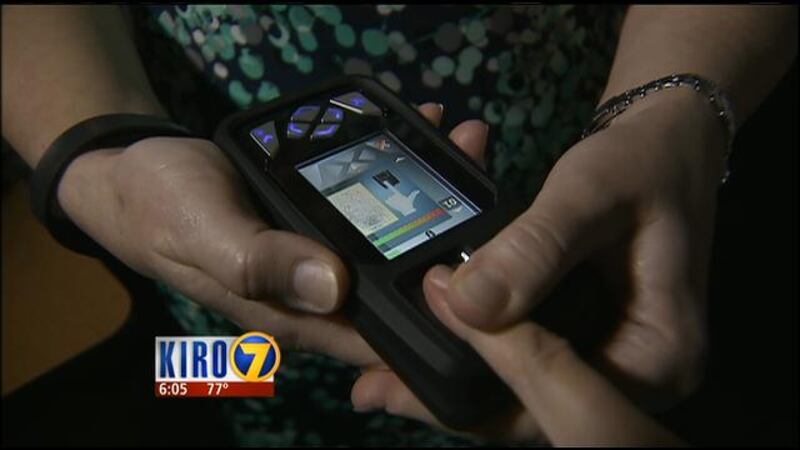King County is spending more than a quarter-million dollars to expand its use of a new crime-fighting tool.
Mobile devices on the county's Automated Fingerprint Identification System allow deputies to scan fingerprints at the scene of a crime, including one Wednesday night.
Patty Klopp with AFIS showed KIRO 7 how a quick scan of someone's finger can help deputies identify that person in minutes.
The system connects wirelessly or through a USB port to the deputy's laptop, which runs the fingerprint through the database.
Green means the person is clear. Red means the person may work for the Sheriff's Office or has a criminal record.
The county has 14 devices right now under a pilot program but is purchasing 250 more at a cost of $287,500. They would arm officers with police agencies throughout the county, Sound Transit, and King County Metro.
The pilot program has allowed deputies to identify people about 800 times so far.
On Wednesday night, a Sound Transit deputy spotted a car speeding down Interstate 5 southbound and followed him off the interstate.
Finally, the suspect sped around a corner in Des Moines and crashed into a fence. Deputies had him in custody, but he wouldn't give them his name.
They used one of the devices to identify him as Marc Williams, who skipped out on community supervision after serving time for assault.
"It probably cut hours off what would have wasted our time to try to figure out who this guy was," King County Sheriff's Sgt. DB Gates said.
Jamela Debelak, technology and liberty director of the American Civil Liberties Union of Washington, said the organization does have its concerns.
"We don't want the police department storing fingerprints of people who are potentially innocent and have never been convicted of a crime," she said.
Debelak said they're also concerned about officers asking for prints from people even if there's no legal cause for them to give them.
But Gates said they're not storing the prints for deputies to use again. She also said they're asking for them when they have probable cause for an arrest, or when the person has no identification at all.
"It's in the field, at that moment, to identify someone whose identity is in question," she said.
Klopp said in July, a few agencies will test out part of the new batch of devices, which will also be able to search state patrol and FBI databases.
If everything goes smoothly, the full roll-out will begin in September.
KIRO







